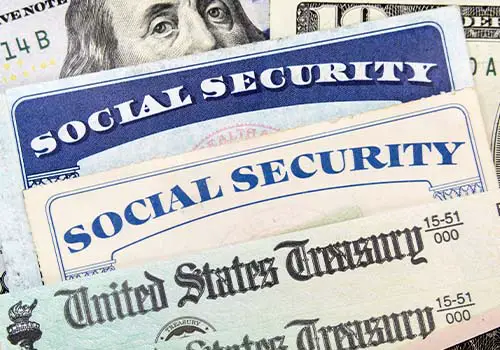The Medicaid offices in each state administer four different Medicare Savings Programs (MSPs). Eligibility criteria and benefits vary from one program to the next. However, the Qualified Medicare Beneficiary program provides enrollees with the highest benefit level.
These programs help pay for Medicare costs, such as monthly premiums, deductibles, copays, and coinsurance amounts. Your income level and countable resources will determine which program you can qualify for. The QMB program covers all your Medicare expenses, saving you thousands of dollars on health care expenses each year.
Keep reading as we tell you exactly what a qualified Medicare beneficiary is and how you might be eligible to participate.
What Is The Qualified Medicare Beneficiary (QMB) Program?
The QMB program is a financial assistance program administered by the Medicaid program offices in each state. While the program’s rules are fairly standardized, a couple of states have higher income limits.
There are four different Medicare savings programs, and the QMB program is one of them. The QMB program provides the highest level of benefit but has the lowest income limits. This means that the Qualified Medicare Beneficiary program is designed for the people who need it most and covers nearly all their Medicare expenses.
Once enrolled in the QMB program, participants will have their monthly premiums (both Medicare Part A and Medicare Part B), deductibles, copays, and coinsurance amounts covered.
Enrollment in the program also automatically qualifies you for the Medicare Extra Help program. The Extra Help program helps cover the costs associated with your Medicare Part D prescription drug plan. So, you could essentially receive full Medicare coverage at no cost. Even when you visit your doctor or receive medical services, you are not required to pay any Medicare cost-sharing expenses.
KEY TAKEAWAYS
- Medicare Savings Programs (MSPs) help Medicare beneficiaries lower their out-of-pocket costs by paying for Medicare premiums, deductibles, copays, and coinsurance.
- The QMB program offers the most benefits out of all the programs. Beneficiaries should never receive a bill for medical services as long as they visit a Medicare provider.
- Enrollees must meet strict resource and income limits to qualify for the QMB program. Monthly Income must be below $1,275 for individuals and $1,724 for someone married.
Eligibility For The QMB Program
So, how can you qualify for the QMB program? Remember that this financial assistance program is designed for low-income qualifying individuals who need help. So, a resource limit and a monthly income limit exist for participation in the program. You will not be allowed to participate if you earn too much money or have too much money in the bank.
The first step for eligibility is to be enrolled in or at least be eligible for Medicare Part A. If you are not eligible for Medicare, then you cannot participate in the QMB program.
Resource Limitations
Next, you must have limited resources. A single individual must have less than $9,430 in resources, and a married couple must have less than $14,130. Countable resources include money in the bank, stocks, and bonds. However, your home, one car, furniture, a burial plot, and up to $1,500 put aside for burial expenses are exempt from the limit.
Monthly Income Limitations
Finally, your monthly income must be at or below 100% of the Federal poverty level. In most states, this equates to $1,275 for a single individual or $1,724 for someone married. The limits in Alaska and Hawaii are slightly higher. Even if your income is somewhat higher than this, you should still contact your state’s Medicaid program to determine whether you might still qualify.
Even if you don’t qualify for QMB benefits, you might be eligible for other Medicare savings programs, like the Specified Low-Income Medicare Beneficiary (SLMB) program. These different programs can still assist with paying your Medicare premiums, although they won’t cover your deductibles, copays, and coinsurance amounts.
Must read articles related to Medicare
- How do you get a Medicare Flex card for seniors?
- The four types of Medicare savings programs.
- What do I do if I need a Medicare card replacement?
- How do I qualify for the Medicare Extra Help program?
- Overview of what is covered under Medicare.
Applying For The Qualified Medicare Beneficiary Program
Applying for the program is easy. You first need to make sure that you meet the requirements mentioned above. Ensure that you are at least eligible for Medicare Part A, have limited resources, and have limited income. If you think you qualify, then go ahead and contact your state’s Medicaid office.
Contact the Local Medicaid Office
Although Medicare and Medicaid are two different programs, the Medicare Savings programs are administered by state Medicaid offices. Once you contact the office in your state, they can walk you through the application process. Some individuals might be eligible for a Medicare savings program and their state’s Medicaid program.
You should still contact the Medicaid office to submit a QMB application if your income exceeds the limits. You might find that some of your resources or income are exempt from being countable toward the limit. Similarly, the Medicaid office might be able to assist you in getting enrolled in other similar programs.
Additional Resources
Some programs, like the QDWI program for qualified disabled individuals, have much higher income limits. Some Medicare Advantage plans even offer a Medicare Part B Give Back benefit that helps pay your Medicare Part B premium. Your state Medicaid office can provide plenty of additional information that can be used to get you the assistance you need.
TIP
Each Medicare Savings program has different income limits. If your income is slightly higher than the QMB limits, you should still apply. You might qualify for other programs, or there might be some income exclusions that allow you to qualify for the QMB program.
Medical Billing & The QMB Program
So, how does billing work when a qualified Medicare beneficiary receives medical services? Once you present your QMB card to your Medicare provider, they cannot bill you.
- If you are enrolled in the QMB program, you should never receive a bill for medical services as long as you visit a Medicare provider.
Federal law prohibits these healthcare providers from sending you a bill, and this law also includes pharmacies as well. If you are enrolled in this program, you are not required to pay your Medicare Part A premium, Part B premium, or any Medicare cost-sharing expense related to medical services.
How Does QMB Work With Medicare Advantage?
Many people wonder whether they can enroll in a Medicare Advantage plan if they qualify for the QMB program. The answer is yes! If you are a qualified Medicare beneficiary, you might still choose to enroll in a Medicare Advantage plan.
The best Medicare Advantage plans for those individuals are typically the special needs plans for dual enrollment in Medicare and Medicaid. Many people choose these plans for their additional benefits, like dental and vision coverage.
Medicaid should still pay your monthly premium associated with the Advantage plan you choose, but you can always contact your Medicaid office to be sure.
The Bottom Line
Many people on Social Security might not have enough money to pay for their health insurance costs through Medicare, and the Qualified Medicare Beneficiary program can help.
This program will cover all your Medicare costs, and Federal law even prohibits your provider from sending you a bill. You can enroll by contacting your state’s Medicaid office.
Frequently Asked Questions
If you are a Qualified Medicare Beneficiary, you will not owe a Part B premium. Your state’s Medicaid office will pay this amount for you. In fact, QMB participants will not have any Medicare expenses.
The plan will pay both the Part A and Part B premium, as well as all deductibles, copays, and coinsurance amounts. Your health care provider is prohibited by law from sending you a bill as long as you are a QMB program participant. The QMB program provides the highest level of benefits of any of the Medicare savings programs.
Many people wonder, “What is QMB?” Being a qualified Medicare beneficiary means that your income is so low that your state’s Medicaid office will pay all your Medicare expenses.
- If you are a QMB, it means that your income and resources have been verified, and you are eligible to participate in the QMB program.
You will not be responsible for paying any Medicare premiums, deductibles, copays, or coinsurance amounts. All these expenses will be covered for you.
The Medicare savings program helps save you money on your Medicare expenses. These programs will cover things like your monthly premium, deductibles, copays, and coinsurance amounts.
Some programs will cover all those items, while others might only cover your monthly premium. These programs are a great way for low-income individuals to save money on their health care expenses.
You can find a Social Security Administration office near you by using our SSA office locator and searching for your closest location.






